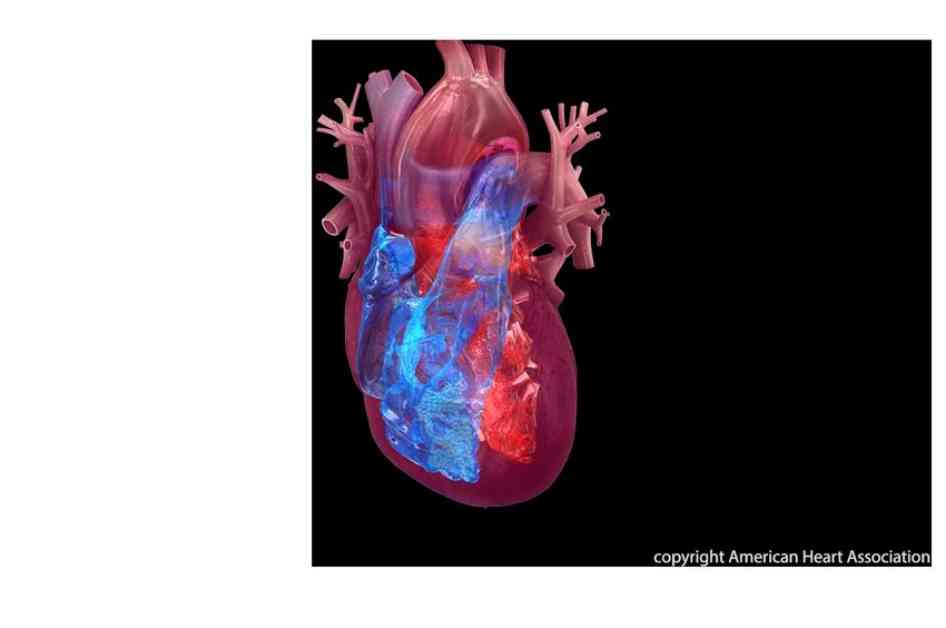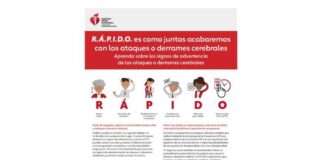Studying Rare Congenital Heart Defects: $13M Project Focuses on Biological Mechanisms
In a groundbreaking effort to shed light on the complexities of single ventricle heart disease, a rare congenital heart defect affecting approximately 1 in 15,000 babies born in the U.S., a new $13 million research initiative has been launched. This innovative project, spearheaded by the American Heart Association and Additional Ventures, aims to delve deep into the biological mechanisms underlying this condition to pave the way for improved clinical care and potential cures.
The American Heart Association/Additional Ventures Collaborative Sciences Awards in Single Ventricle Heart Disease is a collaborative endeavor that brings together teams of scientists from prestigious institutions such as Nationwide Children’s Hospital, The Ohio State University, Stanford University, and the University of Colorado. These teams will work collectively on research projects designed to expand our understanding of the biological mechanisms and clinical complications associated with single ventricle heart disease.
Keith Churchwell, M.D., FAHA, volunteer president of the American Heart Association, emphasized the significance of this research initiative, stating, “Single ventricle disease is one of the most complex forms of congenital heart defects, often diagnosed early in life. Children with this condition face numerous complications that can significantly impact their quality and duration of life. Through this collaborative effort, we hope to uncover new insights that will ultimately benefit patients with single ventricle heart disease.”
Erin Hoffmann, executive chairman and founder of Additional Ventures, echoed Dr. Churchwell’s sentiments, highlighting the importance of addressing the gaps in knowledge surrounding single ventricle heart disease. She expressed optimism about the program’s potential to inspire new projects and foster innovative thinking within the research and clinical communities dedicated to this critical issue.
Subheadings:
Research Projects Unveiled
The ambitious research projects funded by the American Heart Association/Additional Ventures initiative commenced on July 1, 2024, and are set to continue for three years. Each project focuses on a specific aspect of single ventricle heart disease, aiming to unravel the underlying biological mechanisms and explore potential therapeutic interventions. Let’s delve into the details of these cutting-edge research endeavors:
Elucidation of the Mechanisms Underlying the Development and Progression of Fontan Associated Liver Disease (FALD)
Led by Christopher Breuer, M.D., director of the Center for Regenerative Medicine at Nationwide Children’s Hospital, this research team is dedicated to studying Fontan associated liver disease (FALD), a serious complication of single ventricle disease. Currently, there is limited understanding of the mechanisms driving FALD, and liver transplantation remains the only available treatment, posing additional health risks. Through the use of animal models, the team aims to investigate how blood flow influences the development and progression of FALD, shedding light on potential therapeutic strategies for this condition.
PULSE-SVA Network: Personalized Understanding from Linked Simulations & Electrophysiology in Single Ventricle Arrhythmia
Isabelle Deschênes, Ph.D., professor and chair of physiology and cell biology at The Ohio State University College of Medicine, leads a research team focused on unraveling the complexities of arrhythmias in individuals with single ventricle heart disease. By delving into the electrical properties of the hearts of these patients, the team aims to explore the potential of cardiac radiotherapy as a novel treatment approach to enhance heart function and correct rhythm abnormalities in single ventricle patients.
Correcting Latent Mechanisms that Underlie Neurodevelopmental Disorders Associated with Congenital Heart Disease
Casey Gifford, Ph.D., assistant professor of pediatrics cardiology and genetics at Stanford University School of Medicine, heads a research team dedicated to identifying genetic factors contributing to neurodevelopmental disorders in individuals with single ventricle disease. By examining the interactions between endothelial cells in the brain and heart during development, the team aims to elucidate how changes in DNA may impact the development of these organs. This research has the potential to enhance genetic counseling and identify new therapeutic targets for neurodevelopmental disorders in single ventricle patients.
The DEFEND Trial: Dapagliflozin or Empagliflozin for Fontan Exercise, QOL and MitochoNDrial function
Shelley Miyamoto, M.D., FAHA, a professor of pediatrics (cardiology) at the University of Colorado School of Medicine, leads a team exploring the potential benefits of sodium-glucose co-transporter 2 (SGLT2) inhibitors, commonly used to treat diabetes and heart failure, in teenagers and young adults with single ventricle disease. The DEFEND trial aims to determine whether these medications can improve quality of life and exercise capacity in this population, addressing a critical gap in research surrounding the pharmacological management of single ventricle heart disease.
Consequences of Impaired T Cell Homeostasis in Single Ventricle Congenital Heart Disease
Stephanie Nakano, M.D., a pediatric cardiologist at Children’s Hospital Colorado, leads a research team focused on understanding the immune system dysregulation observed in individuals with single ventricle heart disease. By investigating the role of abnormal immune cells in heart failure among single ventricle patients, the team aims to identify predictive markers for complications and potential therapeutic interventions to improve patient outcomes. This research holds promise for enhancing our understanding of the immune responses in single ventricle heart disease and developing targeted treatment strategies.
Conclusion:
In conclusion, the collaborative efforts of the American Heart Association and Additional Ventures in launching the Collaborative Sciences Awards in Single Ventricle Heart Disease represent a significant step forward in advancing our knowledge of this complex congenital heart defect. By fostering interdisciplinary research and innovative approaches, these projects hold the potential to transform clinical care and outcomes for individuals living with single ventricle heart disease. As these research endeavors unfold over the next three years, the scientific community eagerly anticipates the groundbreaking discoveries that may emerge, shaping the future of care for patients with this rare condition.

















